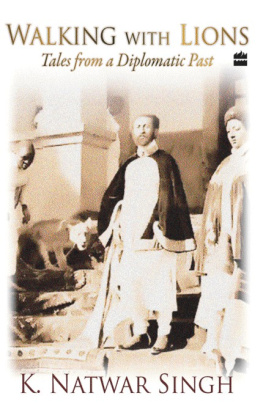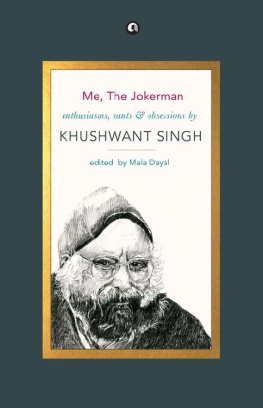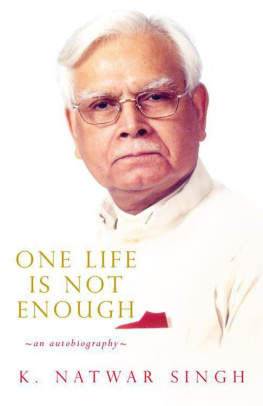K Natwar Singh - My China Diary 1956-88
Here you can read online K Natwar Singh - My China Diary 1956-88 full text of the book (entire story) in english for free. Download pdf and epub, get meaning, cover and reviews about this ebook. year: 2009, publisher: Rupa Publications India, genre: Detective and thriller. Description of the work, (preface) as well as reviews are available. Best literature library LitArk.com created for fans of good reading and offers a wide selection of genres:
Romance novel
Science fiction
Adventure
Detective
Science
History
Home and family
Prose
Art
Politics
Computer
Non-fiction
Religion
Business
Children
Humor
Choose a favorite category and find really read worthwhile books. Enjoy immersion in the world of imagination, feel the emotions of the characters or learn something new for yourself, make an fascinating discovery.
- Book:My China Diary 1956-88
- Author:
- Publisher:Rupa Publications India
- Genre:
- Year:2009
- Rating:3 / 5
- Favourites:Add to favourites
- Your mark:
- 60
- 1
- 2
- 3
- 4
- 5
My China Diary 1956-88: summary, description and annotation
We offer to read an annotation, description, summary or preface (depends on what the author of the book "My China Diary 1956-88" wrote himself). If you haven't found the necessary information about the book — write in the comments, we will try to find it.
My China Diary 1956-88 — read online for free the complete book (whole text) full work
Below is the text of the book, divided by pages. System saving the place of the last page read, allows you to conveniently read the book "My China Diary 1956-88" online for free, without having to search again every time where you left off. Put a bookmark, and you can go to the page where you finished reading at any time.
Font size:
Interval:
Bookmark:
My China Diary 195688
recounts the events which occurred when the author served as a diplomat in Beijing, and what transpired during Premier Chou En-lai's ill-fated visit to India in April 1960. The book concludes with Prime Minister Rajiv Gandhi's path-breaking passage to China. It offers new insights about the complexities of India-China bilateral relations between 1956 and 1988. His overview is fascinating. My China Diary 195688 is illuminating, provocative, stimulating and unputdownable.
K. NATWAR SINGH has been Ambassador to Pakistan and Poland, High Commissioner to Zambia and Deputy High commissioner in the UK. He also served in the Permanent Mission of India at the United Nations for five years. He was awarded the Padma Bhushan in 1984. He is Honorary Fellow of Corpus Christi College, Cambridge. He has been a member of both Houses of Parliament and the Minister for External Affairs (2004-05).
www.rupapublications.com
Cover Design: PealiDezine
My China Diary
195688
Let a hundred flowers bloom and
let a hundred schools of thought contend.
Mao Tse Tung
My China Diary
195688
K. Natwar Singh
External Affairs Minister (2004-05)

Copyright K. Natwar Singh 2009
First Published 2009
Second Impression 2009
Third Impression 2009
Published by
Rupa Publications India Pvt. Ltd.
7/16, Ansari Road, Daryaganj,
New Delhi 110 002
All rights reserved.
No part of this publication may be reproduced, stored in a retrieval system, or transmitted, in any form or by any means, electronic, mechanical, photocopying, recording or otherwise, without the prior permission of the publishers.
The author asserts the moral right to be identified as the author of this work.
Photo credit: Hari Krishna Katragadda
To the Memory of y Brother
Bhagwat Singh
1926-2010

Deng Xiaoping and Rajiv Gandhi, Peking, 1988
Contents

List of Illustrations

Preface

This book is divided into three sections. The first covers the years 1956-58. The second deals with Prime Minister Chou En-lai's faltered and failed.
I belong to the 1953 Indian Foreign Service (IFS) batch. I opted for Chinese as my foreign language the first IFS entrant to do so. Why Chinese? Why not French or Russian? Here's why. In those remote, almost prehistoric days, Prime Minister Jawaharlal Nehru met new entrants to the IFS individually. He gave each of us no more than ten minutes. It was, for young men in their twenties, a very special occasion. To pretend that one was not nervous or tense is to give oneself retrospective airs. Of course, one was nervous.
My ordeal began with the prime minister asking me in Hindi, 'Kya humae Cheen se koi khatra hai?' (Do we need to fear the Chinese?) I replied, 'Jee, hai bhi or nahin bhi (sir, we do and do not) because one's closest neighbour is one's closest enemy and one's closest friend'. The great man's response was, 'Mujhe Chanakya niti sikha rahe ho' (Are you trying to teach me Chanakya's philosophy?). He smiled, asked one or two more questions on the Five Year Plan, South Africa, etc. The agni pariksha (trial by fire) was over.
On 14 April 1953, I joined the IFS and IAS batches at Metcalfe House in Old Delhi for training. Our training was not strenuous. One peculiarity sticks in my mind. The principal and the vice-principal, M/s Bapat and Shukla, both ICS men were not on talking terms. So much for esprit de corps.
At Cambridge, I had been doing history for my tripos. After getting into the IFS, I switched to Chinese. A benign follower of Marshal Chiang Kai-shek attempted to teach me Mandarin. Neither of us succeeded.
On his return from the successful China tour of 1954, Prime Minister Nehru spoke to the officials of the ministryIFS probationers includedabout his impressions of China and its leadership, particularly his discussion with Chairman Mao Tse Tung The record of his discussion with Chairman Mao Tse Tung and Premier Chou En-lai in October 1954 makes it clear that no real meeting of minds occurred. The Chinese leaders spoke as communists and Nehru, as a genuine democratic socialist, was strong on generalities and less so on specifics.
In December 1954, I was attached to a Chinese cultural delegation which performed in Delhi, Mumbai, Chennai and Kolkata. It was my first exposure to Chinese dance, music and state-controlled culture. The dance I loved; the music I loathed.
In Chennai, after the show, Vice-Minister Chen Chen Tho the joint secretary roundly ticked me off for my impertinence.
In December 1955 came Madame Soong Ching-ling (Mrs Sun Yatsen). I was attached to her. She knew English, but spoke only Chinese in public. She stayed with the prime minister at Teen Murti House and charmed everyone. I gave her the alarming news that I would soon be posted in the Indian Embassy in Peking (now Beijing) and hoped to see her there. She graciously said, 'Yes, do contact me,' and I did.
Before leaving for China in June 1956, S. Gopal, director of the historical division, Ministry of External Affairs asked me to read Edgar . Thus equipped, I embarked on my not-so-long march to Mao Tse Tung's New China. It was June 1956. My lowly status as third secretary in the embassy ensured my non-involvement in high-level diplomatic deliberations or writing dispatches for the enlightenment of our mandarins in South Block back home. I made no contribution to policy making or policy implementation. No one in particular was passionately interested in my evolution as a worthwhile diplomat. This was a blessing in disguise. I was left to myself and that suited me. Both time and space were available to me. But the latter was limited. Peking offered no hedonistic outlets. It was not a place for sowing your wild oats or burning your bridges and any such attempts would have resulted in personal disaster. I had no intention of tempting fate. Austerity and a Spartan lifestyle confronted one on arrival in Beijing which suited me.
I was then going through a period of ostentatious puritanism. I had an instinctive aversion to bourgeois comforts. Beijing was an ideal place for this unexciting pursuit. Here, a sybaritic interlude of even a minor character was inconceivable. Peking of that era was a good place to have a rendezvous with oneself. This I often did. My underemployment continued till I started attending Peking University in 1957. In the meanwhile, I did not go to seed.
My diary from 1956-58 I hope, gives some idea of the texture and tenor of life in the Chinese capital, and the temper of the times more than fifty years ago. It makes no claim to literary excellence. The recurrent trivialities of diplomatic existence, the verbosity, the repetitions, the callow judgments needed drastic weeding out. Personal references have been minimised. Pretentious passages have been given the red pencil treatment. Freshness has not been sacrificed.
As a period piece it may have some value. A diary can be a tyrant. It can enslave the diarist. This did not happen with me. I did not live for the diary; weeks passed when I did not even go near it.
The China of the late 1950s was still a nation in the making. It was not a world player in any field. In many countries the notice boards read China: No Entry. The diplomatic corps was small less than thirty missions. All socialist (read communist) countries were represented at high levels. From Asia, the prominent ones included India, Indonesia, Burma, Ceylon, Vietnam and Pakistan. Only Egypt from West Asia was represented. From Europe Norway, Holland and Sweden. The UK had a charg d'affaires. The press corps came mostly from the socialist countries. Reuters and AFP have their correspondents.
Next pageFont size:
Interval:
Bookmark:
Similar books «My China Diary 1956-88»
Look at similar books to My China Diary 1956-88. We have selected literature similar in name and meaning in the hope of providing readers with more options to find new, interesting, not yet read works.
Discussion, reviews of the book My China Diary 1956-88 and just readers' own opinions. Leave your comments, write what you think about the work, its meaning or the main characters. Specify what exactly you liked and what you didn't like, and why you think so.

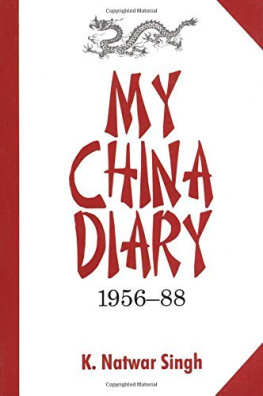

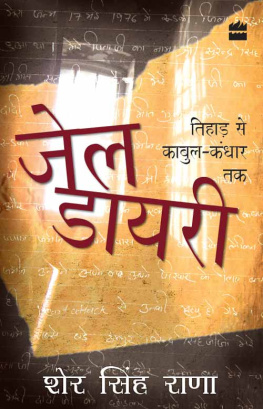
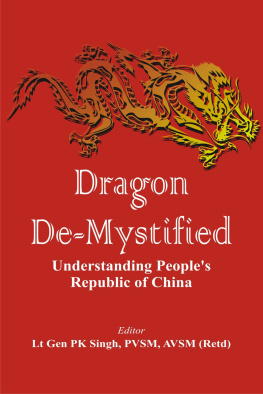
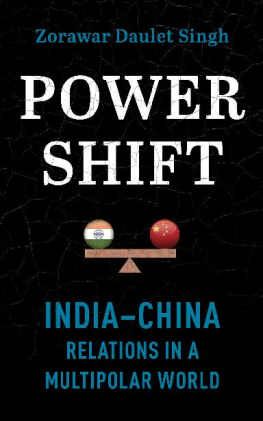
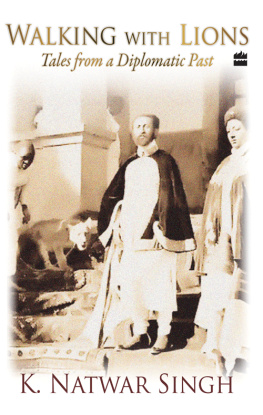

![Thomas Jenner - Kellie’s Diary Complete [All In One]](/uploads/posts/book/124160/thumbs/thomas-jenner-kellie-s-diary-complete-all-in.jpg)
